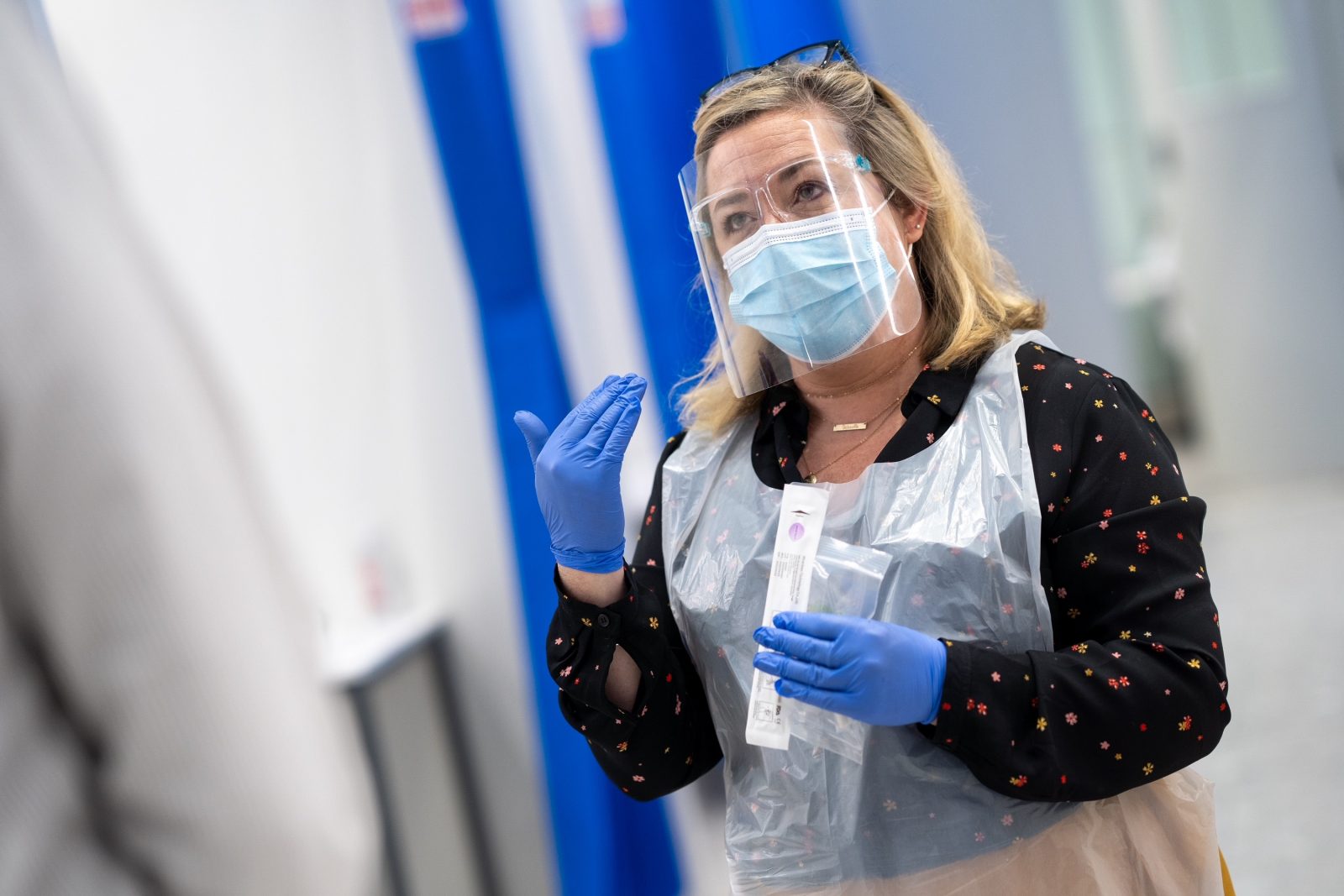
England is looking to partially close a loophole that exempts pilots, cabin crew and several other professions from existing travel restrictions and pandemic-mandated health checks through a new COVID-19 ‘tailored testing system’.
For the first time since the start of the pandemic, aircrew arriving in England will be required to take a rapid antigen test post-arrival. Other professions included in the mass testing order include border force workers, international hauliers and maritime workers, as well as agricultural workers.
The government revealed the plans on Sunday, saying the “bespoke testing regime” would be mandatory for exempt professions starting April 6. Tests will be required for pilots and cabin crew who plan to stay in England for any longer than two days and repeat tests will be required for longer stays up to eight days.
The testing order, however, still excludes aircrew who won’t be staying in England for any longer than two days – typically, layovers for international foreign aircrew are no longer than 48-hours meaning that many crews will still not be required to take a COVID-19 test.
Unlike all other arrivals entering England, aircrew and other exempt professions do not need to take a pre-departure COVID-19 test.
If someone does test positive after taking a rapid antigen test or lateral flow test, then the diagnosis will be confirmed with a seperate polymarese chain reaction (PCR) test. Such is the concern that mutant variants of the virus could be imported from abroad that the government says it will send every positive test for full genomic sequencing.
Anyone found breaking the new testing rules face a hefty fine of £2,000 ($2,758).
Testing can be completed in the workplace or at home, as well as at a network of local community testing sites.
“Swift detection of cases means those who test positive can quickly isolate and, in doing so, break chains of transmission and suppress the virus,” a spokesperson for the Department for Transport (Dft) said of the test regime.
The system replicates a similar regime introduced by the Dutch government last month. The Dutch had originally wanted to test aircrew before departure from a foreign country but faced a revolt from the national carrier KLM which threatened to ground its jets over fears that crew could be abandoned abroad.
Mateusz Maszczynski honed his skills as an international flight attendant at the most prominent airline in the Middle East and has been flying ever since... most recently for a well known European airline. Matt is passionate about the aviation industry and has become an expert in passenger experience and human-centric stories. Always keeping an ear close to the ground, Matt's industry insights, analysis and news coverage is frequently relied upon by some of the biggest names in journalism.







